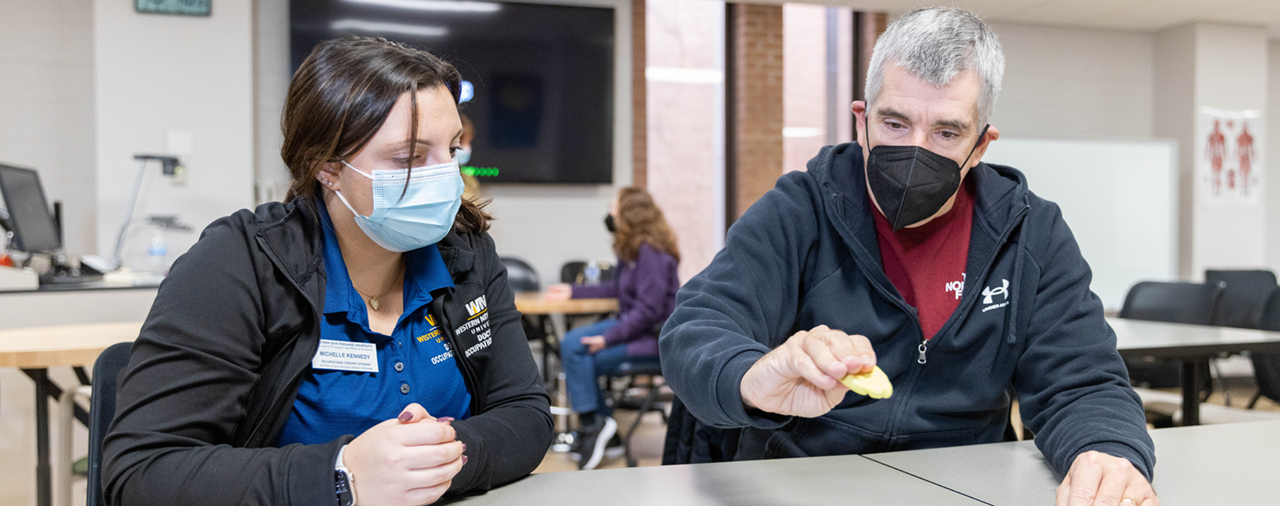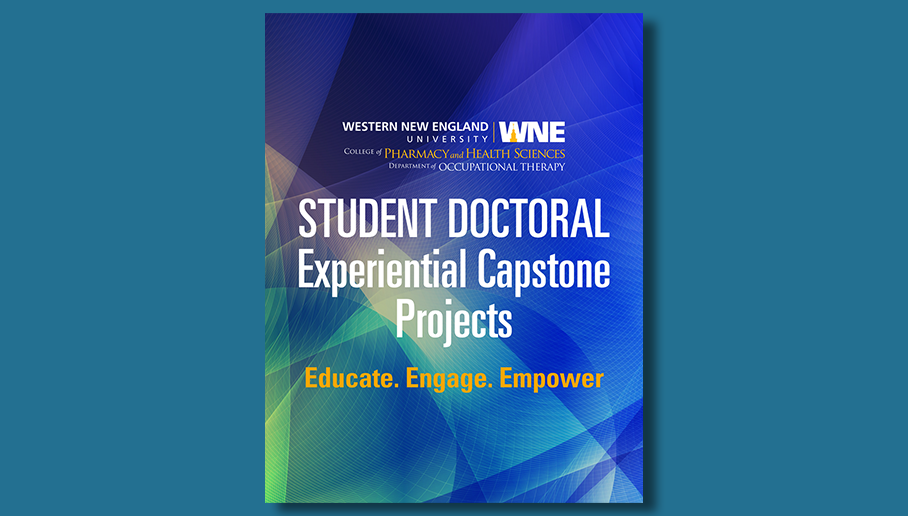WNE OTD Doctoral Experiential
The Accreditation Council for Occupational Therapy Education (ACOTE) establishes Standards for entry-level OTD programs (ACOTE, 2018). As defined by ACOTE, "the goal of the doctoral experiential component is to develop occupational therapists with advanced skills (those that are beyond a generalist level). The doctoral experiential component shall be an integral part of the program’s curriculum design and shall include an in-depth experience in one or more of the following: clinical practice skills, research skills, administration, leadership, program and policy development, advocacy, education, or theory development." The OTD program’s Doctoral Experiential (DEx) has been designed to meet or exceed ACOTE Standard D 1.1–D 1.8.
The WNE OTD Doctoral Experiential has two phases
- A preparatory phase which involves knowledge and skill building and the design of a research project in Years One and Two. Courses associated with this phase include: OTD 525, 541/544, 631/634, 635, and 651/654;
- An experiential/scholarship phase which involves implementation of the proposed research project, and the production and dissemination of a scholarly report on the findings in Year Three (OTD 781/784).



